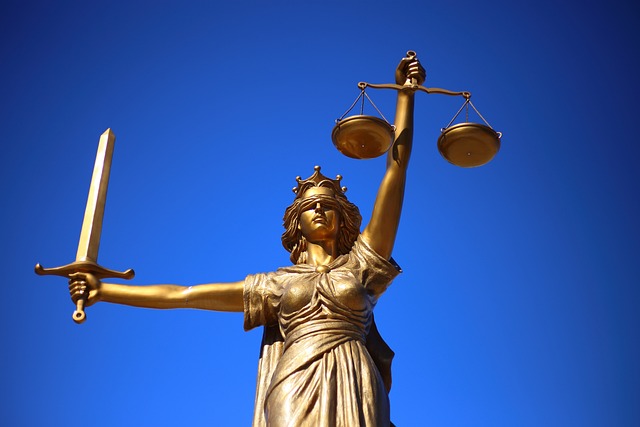Corporate Crime Investigations highlight the critical need for businesses to navigate environmental regulations litigation effectively, preventing devastating ecological and community impacts from white-collar crimes. Key strategies include strategic compliance measures, employee training, robust tracking systems, internal audits, evidence collection preservation, and crisis management. By adhering to complex environmental regulations, prioritizing sustainability, and adopting best practices, organizations can mitigate risks, avoid legal consequences like fines and indictments, and foster a culture of ethical governance for long-term success.
Corporate Crime Investigations, particularly focusing on environmental regulations violations, are crucial aspects of modern business governance. This article delves into the intricate world of uncovering corporate misdeeds, exploring key strategies and best practices. We examine the legal framework underpinning environmental laws and their pivotal role in shaping corporate conduct. Learn effective internal audit techniques for identifying potential breaches, along with evidence collection and preservation methods to navigate litigation smoothly. Discover case studies, challenges, and proven strategies for managing environmental regulations litigation.
- Understanding Corporate Crime Investigations: Uncovering Environmental Regulations Violations
- The Legal Framework: Environmental Laws and Their Importance in Corporate Governance
- Strategies for Effective Internal Audits: Identifying Potential Litigious Breaches
- Evidence Collection and Preservation: Ensuring Integrity During Environmental Crime Probes
- Navigating Litigation: Case Studies, Challenges, and Best Practices for Businesses
Understanding Corporate Crime Investigations: Uncovering Environmental Regulations Violations
Corporate Crime Investigations delve into complex matters, particularly when uncovering violations of environmental regulations. These investigations are crucial in addressing white collar and economic crimes, which can have profound impacts on communities and ecosystems. Environmental laws are designed to protect natural resources, ensure public safety, and promote sustainable practices, making their enforcement vital for maintaining a healthy environment.
Navigating Environmental Regulations Litigation requires a strategic approach. Businesses must understand the intricacies of these regulations to avoid indictment. A robust general criminal defense strategy involves proactive compliance measures, thorough employee training, and implementing systems that track and report environmental activities. By adhering to these practices, organizations can significantly reduce the risk of non-compliance and associated legal repercussions.
The Legal Framework: Environmental Laws and Their Importance in Corporate Governance
In today’s corporate landscape, businesses must navigate a complex web of environmental laws to achieve sustainable growth and avoid litigation. These regulations, designed to protect our planet, also serve as a powerful tool for upholding ethical standards in governance. Understanding and adhering to this legal framework is crucial for building an unprecedented track record of environmental stewardship. Companies that fail to comply risk facing severe consequences, including financial penalties, reputational damage, and even criminal charges.
By implementing robust internal controls and promoting a culture of accountability, businesses can effectively manage environmental risks. This proactive approach not only helps in avoiding indictment but also fosters innovation and long-term success. Through careful interpretation and application of these laws, companies can contribute to a greener future while ensuring their own prosperity. Achieving extraordinary results in environmental compliance is within reach for those who prioritize sustainability alongside profitability.
Strategies for Effective Internal Audits: Identifying Potential Litigious Breaches
Effective internal audits are instrumental in identifying potential litigious breaches within organizations, especially when navigating complex environmental regulations. By employing strategic approaches, audit teams can uncover violations that may lead to costly litigation and reputational damage. One crucial strategy involves understanding the nuances of industry-specific laws and guidelines. This includes staying updated on regulatory changes, ensuring compliance with permits and licenses, and verifying proper waste management practices.
A comprehensive audit should cover all stages of the investigative and enforcement process. By examining financial records, monitoring operational procedures, and interviewing key personnel, auditors can uncover white-collar and economic crimes that may have gone unnoticed. For his clients, this proactive approach means reduced exposure to legal repercussions and a stronger defense against environmental litigation.
Evidence Collection and Preservation: Ensuring Integrity During Environmental Crime Probes
Evidence collection and preservation are paramount during corporate crime investigations, especially when probing environmental violations. The integrity of evidence is crucial for navigating complex regulatory litigation and ensuring just outcomes for respective businesses. A meticulous approach involves documenting every step to avoid contamination or loss of physical evidence, such as samples or contaminated sites.
Professional investigators should follow strict protocols, including chain-of-custody procedures, to maintain the credibility of their findings. By adhering to these practices, they can help businesses defend against accusations, mitigating potential indictment and fostering a culture of compliance with environmental regulations for his clients.
Navigating Litigation: Case Studies, Challenges, and Best Practices for Businesses
Navigating environmental regulations litigation presents unique challenges for businesses. As case studies across various industries demonstrate, non-compliance can lead to significant legal repercussions, including substantial fines and reputational damage. When facing such cases, understanding both the complexities of environmental laws and the specific circumstances of each incident is crucial. Businesses must employ a strategic approach that balances proactive compliance measures with effective crisis management.
Successful navigation often involves striking a delicate balance between protecting corporate interests and achieving justice. Best practices include engaging experienced legal teams capable of handling complex litigation, fostering open communication channels to facilitate internal investigations, and developing robust risk management strategies. Moreover, prioritizing the well-being of both corporate and individual clients is paramount, as winning challenging defense verdicts requires a steadfast commitment to their interests. This holistic approach ensures businesses can effectively manage environmental regulations while upholding their integrity in the face of adversity.
Corporate crime investigations, particularly those involving environmental regulations violations, require a multi-faceted approach. By understanding the legal framework of environmental laws, implementing robust internal audit strategies, and adopting meticulous evidence collection practices, businesses can effectively navigate environmental litigation. Case studies and best practices highlighted in this article serve as valuable guides, empowering organizations to uphold corporate governance standards and minimize legal risks associated with environmental compliance. Mastering How to Navigate Environmental Regulations Litigation is essential for fostering sustainability, accountability, and long-term business success.






